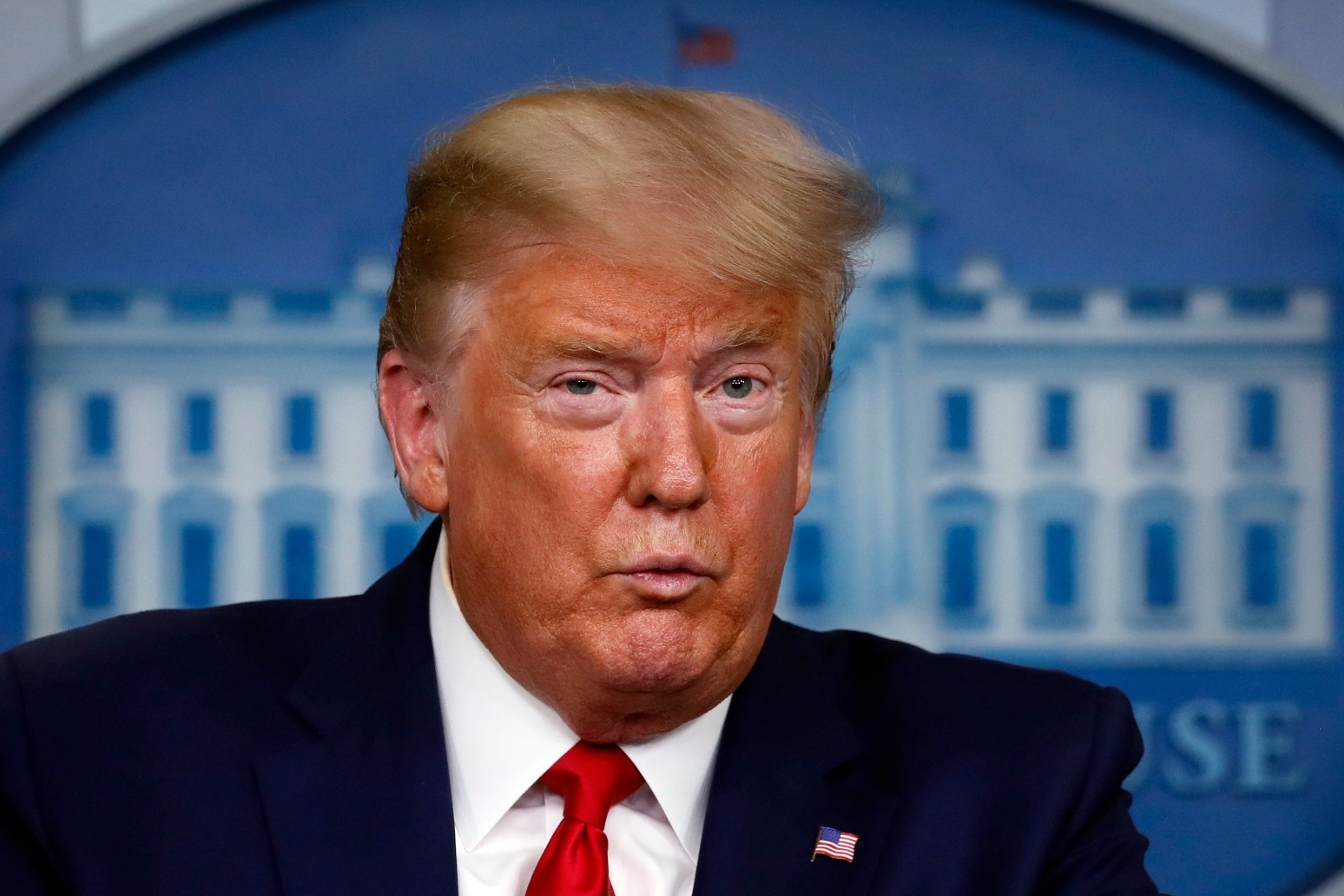
Trump warns Americans to brace for a "hell of a bad two weeks"
President Donald Trump has warned Americans to brace for a "hell of a bad two weeks" amid White House projections of between 100,000 to 240,000 coronavirus deaths in the US even if social distancing guidelines are maintained.
Public health officials stressed the shocking number could be less if people across the country were diligent in keeping their distance from one another.
"We really believe we can do a lot better than that," said Dr. Deborah Birx, the coordinator of the White House coronavirus task force, adding Americans needed to take seriously their role in preventing the spread of disease.
Dr Anthony Fauci, the government's top infectious disease expert, added: "This is a number that we need to anticipate, but we don't necessarily have to accept it as being inevitable."
Mr Trump said it was "a matter of life and death" for Americans to heed his administration's guidelines.
But he predicted the country would soon see a "light at the end of the tunnel" in a pandemic that has killed more than 3,500 Americans and infected 170,000 more.
"I want every American to be prepared for the hard days that lie ahead," Mr Trump said.
"This is going to be one of the roughest two or three weeks we've ever had in our country," he added. "We're going to lose thousands of people."
The jaw-dropping projections were laid out during a grim, two-hour White House briefing. Officials described a death toll that in a best-case scenario would likely be greater than the more than 53,000 American lives lost during World War I.
And the model's high end neared the realm of possibility that Americans lost to the virus could approach the 291,000 Americans killed in World War II.
"There's no magic bullet," Dr Birx said. "There's no magic vaccine or therapy. It's just behaviours. Each of our behaviours, translating into something that changes the course of this viral pandemic."
Dr Fauci called the numbers "sobering" and urged Americans to "step on the accelerator" with their collective mitigation efforts.
"We are continuing to see things go up," Dr Fauci said. "We cannot be discouraged by that because the mitigation is actually working and will work."
Dr Birx said states that had not yet seen a spike in cases like that of New York could take action to flatten the curve of rising hospital admissions and deaths.
Apart from social distancing, officials say another key factor is the frantic efforts of hospitals around the country to prepare for an onslaught of seriously ill patients.
There also remains a wild card in terms of treatment: whether the experimental drug combination Mr Trump has touted - a medicine for malaria and an antibiotic - will actually make a difference.
That combination is already being used on thousands of patients, but Dr Fauci said he would want to see a rigorous test of its effectiveness.
Mr Trump's comments followed his Sunday extension to April 30 of the social distancing guidelines that advise Americans to cease large gatherings, work from home, suspend onsite learning at schools and more.
It was an abrupt reversal for Mr Trump, who spent much of last week targeting April 12 as the day he wanted to see Americans "pack the pews" for Easter Sunday services.
He called the data "very sobering", saying it was his understanding that 100,000 deaths was a minimum that would be difficult to avoid.
Mr Trump also sought to rewrite his past minimisation of the outbreak, saying he rejected those who compared the new coronavirus to the flu - when in fact he repeatedly did so publicly.
"This could be hell of a bad two weeks," he said.
"You know 100,000 is, according to modelling, a very low number. In fact, when I first saw the number ... they said it was unlikely you'll be able to attain that. We have to see but I think we're doing better than that."
Mr Trump played down concerns from New York's Andrew Cuomo and other governors that their states' hospitals do not have enough ventilators to treat an anticipated crush of patients.
The president said the federal government currently had a stockpile of 10,000 ventilators that it planned on distributing as needed.
"Now, when the surge occurs, if it occurs fairly evenly, we'll be able to distribute them very quickly before they need them," Mr Trump said.
"But we want to have a reserve right now. It's like having oil reserves."
Dr Birx said the experiences of Washington state and California gave her hope other states could keep the coronavirus under control through social distancing.
She said those two states had moved quickly to contain early clusters of coronavirus by closing schools, urging people to work from home, banning large gatherings and taking other measures now familiar to most Americans.
"I am reassured by looking at the Seattle line," she added. "California and Washington state reacted very early to this." Many other states and local governments already have stiff controls in place on mobility and gatherings.
Published: by Radio NewsHub